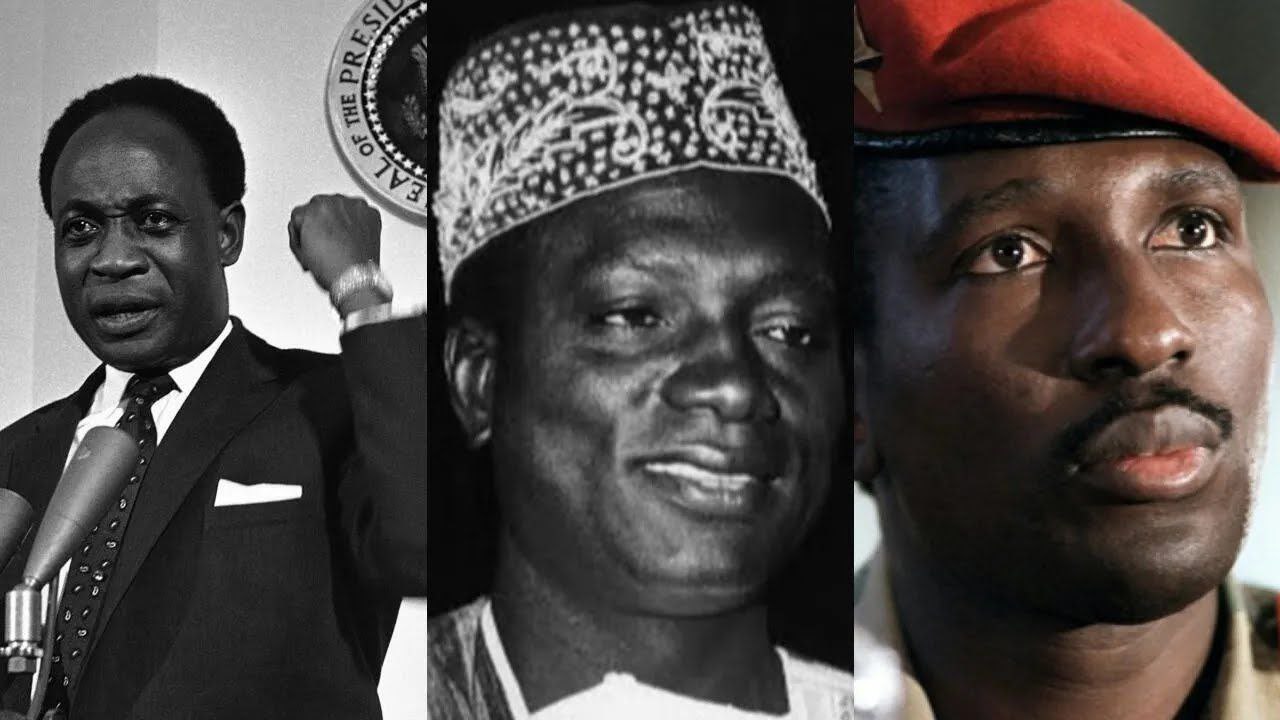By Doğan Duyar / Algeria
Young scientific socialist military leaders were the stars of the Russian-African summit held in St. Petersburg on 27-28 July.
Names such as Bumedian, Sankara, Nkrumah, Keita, Ture, Bourguiba, defenders of a “fully independent” homeland unite the peoples of Africa in their countries again after sixty years of counter-revolution.
In Africa, the need for a ‘security and production revolution’ demands a disengagement from the West. The military coups defeat the ‘social democratic’ parties that could not break away from imperialism. The War of Independence is being guided by the leadership of scientific socialists.
In their speeches, heads of state from all over Africa praised the Union of Soviet Socialist Republics’ (USSR) support for both the struggle for decolonization and the development of the newly formed states. They underlined their cooperation with the socialist People’s Republic of China. They expressed their wish to take part in BRICS, one of the bodies of the New International Order.
The leadership of the socialists in the revolution of security and production
The African states’ need for “the revolution of security, state integrity and production” is blocked by the neo-colonialist, imperialist West. The solution is to disengage from the West.
Since the social democratic, populist and even socialist governments in Africa cannot break away from the West, scientific socialists take the leadership of national democratic revolutions.
Political parties that collapsed in Mali, Burkina Faso and Niger
The parties overthrown in Niger, Burkina Faso, Mali, Algeria are not “centre-right”, “liberal” or “pro-France” parties. The name of the party overthrown in Niger is the “Party for Democracy and Socialism of Niger” (PNDS-Tarayya). The party programme was that of a democratic revolution. Former President Mahamadu Issufu’s 8-point electoral pledge in March 2011 was as follows:
1. Stimulating the economy and promoting social development through public investment.
2. Ensuring food security through the “3N” initiative (Nigeriens Nourish Nigeriens).
3. Ensuring access to drinking water for all through rehabilitation and construction of urban, rural and natural hydraulic works. Access to drinking water in rural Niger is around 45 per cent. In other words, one out of every two people does not have access to drinking water.
4. Improving infrastructure and energy through investments in roads, rural roads, electricity and railways.
5. Significantly improving social indicators (education and health). In this country of 23 million people, the literacy rate is around 30 percent.
6. Creating job opportunities for young people. Niger has the youngest population in Africa. More than 70 percent of the population is under the age of 30. The country, which is 99 percent Muslim, ranks first in Africa with a birth rate of 7.6 per woman.
7. Building strong, reliable and sustainable democratic institutions.
8. Ensuring the security of individuals and property throughout the national territory.
Unfortunately, this programme of democratic revolution only remained on paper due to Atlantic-influenced governments, and the situation required a break with the Atlantic System and the overthrow of the government.
Leftist alliances in Mali and Burkina Faso
The party of Roch Kabore, which was overthrown in Burkina Faso on 24 January 2022, was called the “Popular Movement for Progress” (MPP). At the time of overthrown, this party was in coalition with the Union for Awakening-Sankarian Party (UNIR/PS), influenced by the European “socialist international”, claiming to be the continuation of Burkina’s famous leader Thomas Sankara.
Ibrahim Ebubekir Keyta, known by the acronym IBK, overthrown in Mali on 18 August 2020, originated from the “Alliance for Democracy in Mali – African Party for Justice and Solidarity (Adéma-PASJ)”. The ousted party, which was renamed “Unity for Mali” (RPM) in 2001 following some splits, described itself as “left-wing, socialist”.
It was the government of the National Liberation Front (FLN), the founding state party, that was overthrown in Algeria on 22 February 2019. It was the “Neo-Boumedians” of the FLN, part of the Army-Nation Alliance, who overthrew it!
FLN against FLN in Algeria
Now the FLN is seeking to return to its historical roots from 1954, when it launched its first armed struggle. In December 2019, during the election campaign, President Abdel-Majid Tebbun emphasized the founding FLN in his “54 Promises” manifesto. In 2020, the government summarized their programme as “Where have we left off?”, pointing to the leadership of Huari Boumedyen between 1965 and 1978, a period in which important gains were achieved on the path to national sovereignty.
Revolutionary volcano has erupted in Africa
African political history moves in 60-year cycles.
The period of 1900-1960 was of revolutions.
The period of 1960-2020 was of counter-revolution.
The African continent, which opposed colonialism at the beginning of the 20th century, is now rebelling against the sixty-year neo-colonialist order.
“Second Wars of Independence” are taking place in African states.
The French forces are being kicked out. Macron and his kind are now undesirable in Africa.
The founding leaders, the “symbol of independence from imperialism and colonialism” who were said to be “out of date” are now reappearing on the stage of history: Huari Bumedian in Algeria, Thomas Sankara in Burkina Faso, Kwame, Nkrumah in Ghana, Modibo Keita in Mali, Ahmed Seku Ture in Guinea, Habib Bourguiba in Tunisia.
The scientific socialist founding leaders who wanted to be forgotten are once again the hope of their countries.

















Leave a Reply